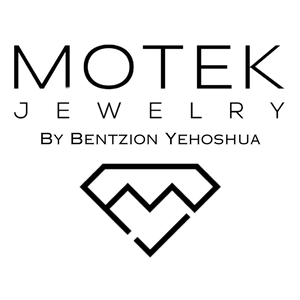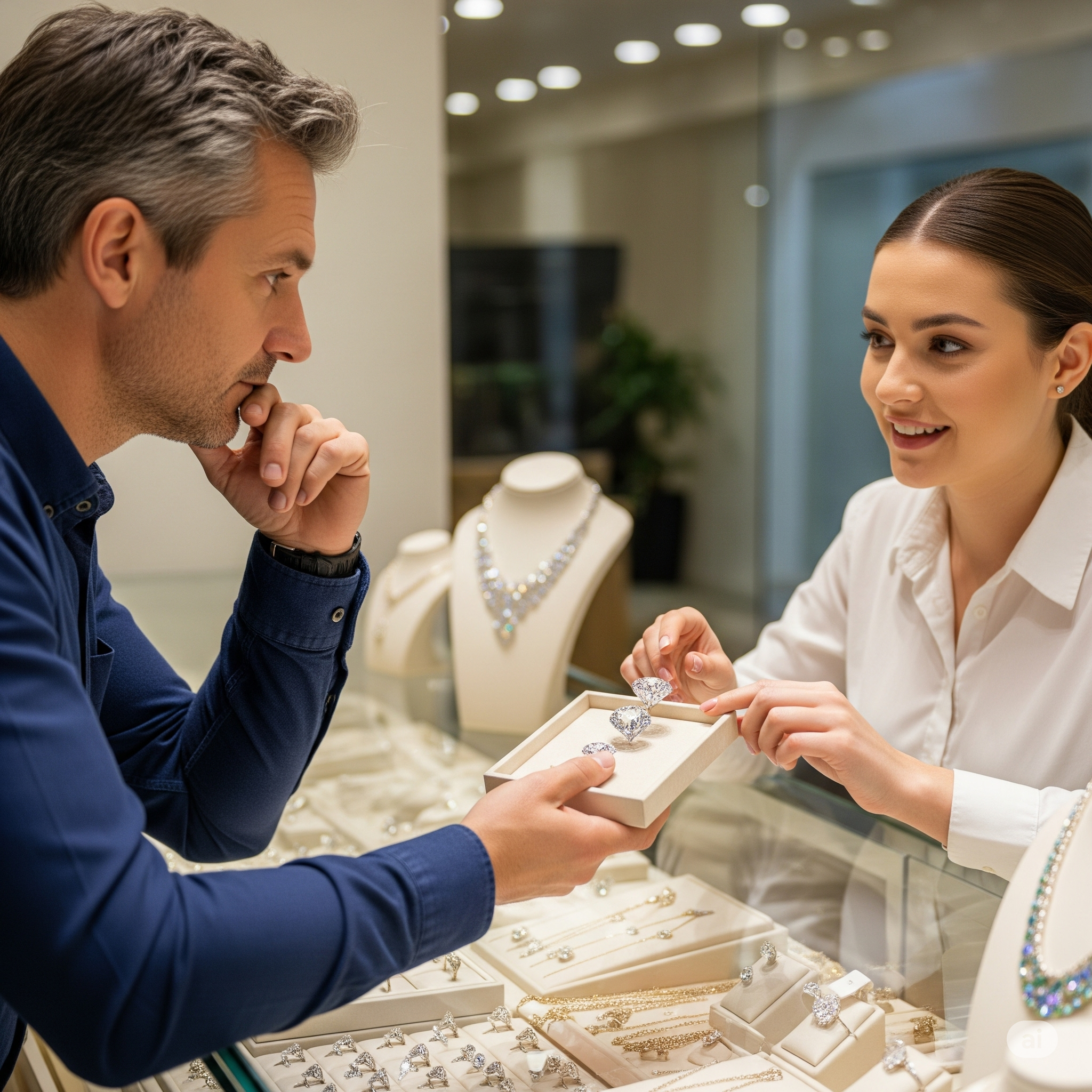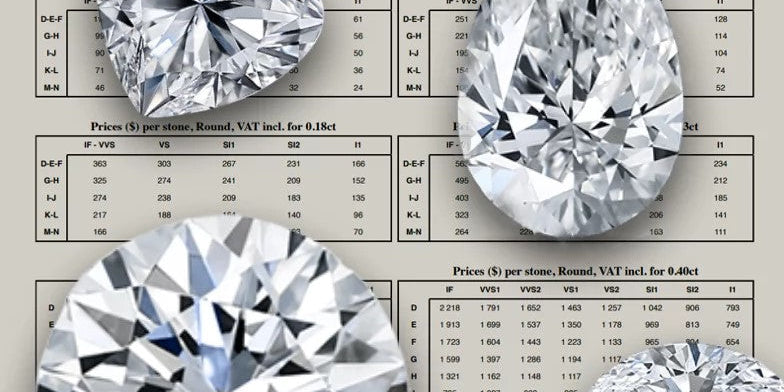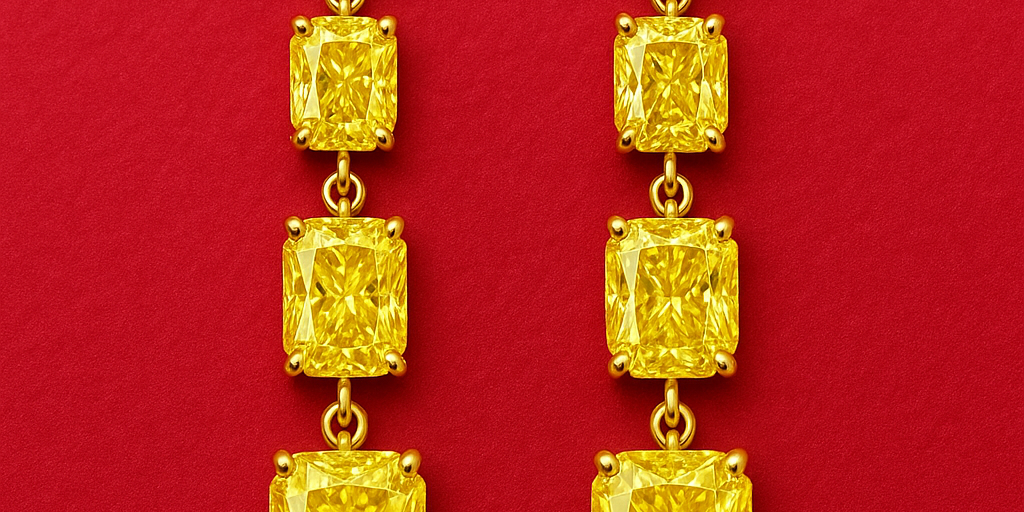Do Jewelers Buy Back Lab-Grown Diamonds? Navigating the Secondary Market
Purchasing a diamond is a significant decision, often made with the hope that the piece will be cherished for a lifetime. However, life circumstances can change, and sometimes, for various reasons, people consider selling their jewelry. For those who've chosen the beauty and ethical appeal of lab-grown diamonds, a practical question often arises: "Do jewelers buy back lab-grown diamonds? If I ever need to sell my lab-grown diamond, will there be a receptive secondary market, or will I be left without options? Understanding this aspect is crucial for feeling confident in my purchase." This concern is valid, reflecting a desire for liquidity and foresight in any valuable acquisition.
At Motek Jewelry, we believe in complete transparency throughout your diamond journey, from selection to potential future considerations. Our founder and lead designer, Bentzion Yehoshua, is committed to providing honest guidance on all aspects of diamond ownership. This article will empathetically address the question, "Do jewelers buy back lab-grown diamonds?" by explaining the current landscape of the secondary market for these innovative gems, managing expectations, and offering practical advice on how to approach selling a lab-grown diamond, reinforcing that their true value lies beyond a simple buyback price.
The Problem Solved: This article addresses the uncertainty around selling lab-grown diamonds, specifically "Do jewelers buy back lab-grown diamonds?" It explains the current limitations of the secondary market for both natural and lab-grown diamonds, validates the concern, and then shifts focus to the primary value of lab-grown diamonds (quality for price, ethics). It provides practical advice (consignment, trade-ins) and positions Motek Jewelry as a transparent and guiding resource, managing expectations about financial returns.

1. The Reality of Diamond Buybacks (for All Diamonds)
First, it's important to understand the broader reality of jewelers buying back any diamonds, natural or lab-grown:
- Wholesale vs. Retail: When a jeweler buys a diamond from a customer, they are buying at a wholesale price, significantly below what you paid at retail. They need to account for their own profit margin, potential recutting or repair costs, and inventory holding costs.
- Limited Demand for Used Stones: Jewelers generally prefer to sell new diamonds with clear provenance and certification. Buying a used stone adds complexities in verification and potential liability.
- Natural Diamonds' Struggle: Even natural diamonds, despite their historical "investment" marketing, typically have a very poor resale value for consumers, often fetching only 20-50% of the original retail price when sold back to a jeweler or pawn shop.
So, the challenge of selling a diamond for a significant portion of its original retail price is not unique to lab-grown diamonds; it's a general characteristic of the retail diamond market.
2. The Evolving Landscape for Lab-Grown Diamonds in the Secondary Market
Regarding "Do jewelers buy back lab-grown diamonds?" the answer is: it varies, and the market is still evolving.
- Some Jewelers Will: A growing number of jewelers who sell lab-grown diamonds may also offer to buy them back, or more commonly, offer a trade-in value towards a new, larger, or different lab-grown diamond. This is more common with larger, high-quality stones.
- Specialized Resale Platforms: Dedicated online platforms for selling pre-owned lab-grown jewelry are emerging, though they are not yet as robust or liquid as traditional marketplaces for other luxury goods.
- Pawn Shops & Consignment: Like natural diamonds, pawn shops might offer a very low percentage of the original retail price. Consignment with a jeweler might yield a better return, but the jeweler will take a significant commission.
- Market Maturity: Because lab-grown diamonds are a newer mainstream product, their secondary market is less established and less liquid than that for natural diamonds. This means finding a buyer and getting a competitive price can be more challenging.
3. Why the "Buyback" Question Doesn't Diminish Lab-Grown Value
While the challenges of reselling are real, they don't diminish the core value proposition of lab-grown diamonds:
- Exceptional Initial Value: The primary benefit of a lab-grown diamond is the ability to acquire a far larger, higher-quality diamond for your budget compared to a natural diamond. You get more intrinsic beauty and brilliance for your money upfront. This significant initial saving means that even with lower resale percentages, the absolute dollar amount lost might be less than the premium you would have paid for a natural diamond.
- Ethical and Sustainable Choice: The peace of mind that comes with knowing your diamond is conflict-free and environmentally conscious is a value that transcends monetary resale. This intrinsic worth remains constant.
- Enduring Beauty and Durability: A lab-grown diamond is a real diamond. It will maintain its sparkle, durability, and beauty forever, regardless of market fluctuations. Its purpose is to be cherished, not to be treated as a liquid financial asset.
4. Best Practices for Selling (If You Must)
If you find yourself needing to sell a lab-grown diamond:
- Keep All Documentation: Always keep your original grading report (GIA, IGI, GCAL, AGS) and purchase receipt. This is vital for proving authenticity and quality.
- Consult Your Original Jeweler: If you purchased from a reputable jeweler like Motek Jewelry, inquire about their trade-in or buyback policies. They may be the most straightforward option for upgrading or changing your piece.
- Explore Online Platforms: Research specialized online jewelry resale sites.
- Consider Consignment: A local jeweler might offer consignment, where they sell the piece for you and take a percentage.
- Manage Expectations: Be realistic about the resale price. Just as with natural diamonds, you will likely receive a fraction of your initial purchase price.
At Motek Jewelry, Bentzion Yehoshua is dedicated to helping you find a diamond that brings you joy and confidence. While the secondary market for lab-grown diamonds is still maturing, their undeniable beauty, exceptional value, and ethical integrity make them a brilliant choice for modern consumers. Your true investment is in the love, beauty, and memories your diamond represents.
Curious about the value of your lab-grown diamond or looking to upgrade?
Contact Motek Jewelry to discuss your options or schedule an appointment.
Phone: 8452136087 Email: contact@mymotek.com

Industry Expert References:
- Forbes - "The Growing Market For Lab-Grown Diamonds": https://www.forbes.com/sites/pamdanziger/2023/11/27/the-growing-market-for-lab-grown-diamonds/?sh=19150820793b (Discusses market growth and implications for liquidity.)
- GIA (Gemological Institute of America) - "Lab-Grown Diamonds": https://www.gia.edu/gia-news-research-lab-grown-diamonds (General info on market and properties, supporting discussion on resale.)
- The New York Times - "The Diamond Dilemma: A Gem That Lasts Forever, Made in a Lab": https://www.nytimes.com/2021/04/23/style/lab-grown-diamonds.html (Covers the evolving market and consumer considerations.)
- Rapaport Diamond Report: https://www.diamonds.net/ (Leading industry source, often has discussions on resale markets for both natural and lab-grown.)
- Bain & Company - "The Global Diamond Industry Report": https://www.bain.com/ (Analyzes market structure and secondary market dynamics for diamonds.)
- International Gem Society (IGS) - "Synthetic Diamonds: The Complete Guide": https://www.gemsociety.org/article/synthetic-diamonds-guide/ (General information about synthetic diamonds and their market.)
- Pawn Shop Guide - "Selling Diamonds to a Pawn Shop": https://www.pawnshopguide.com/how-to-sell-diamonds-at-a-pawn-shop/ (Provides realistic expectations for selling any diamond to a pawn shop.)












































